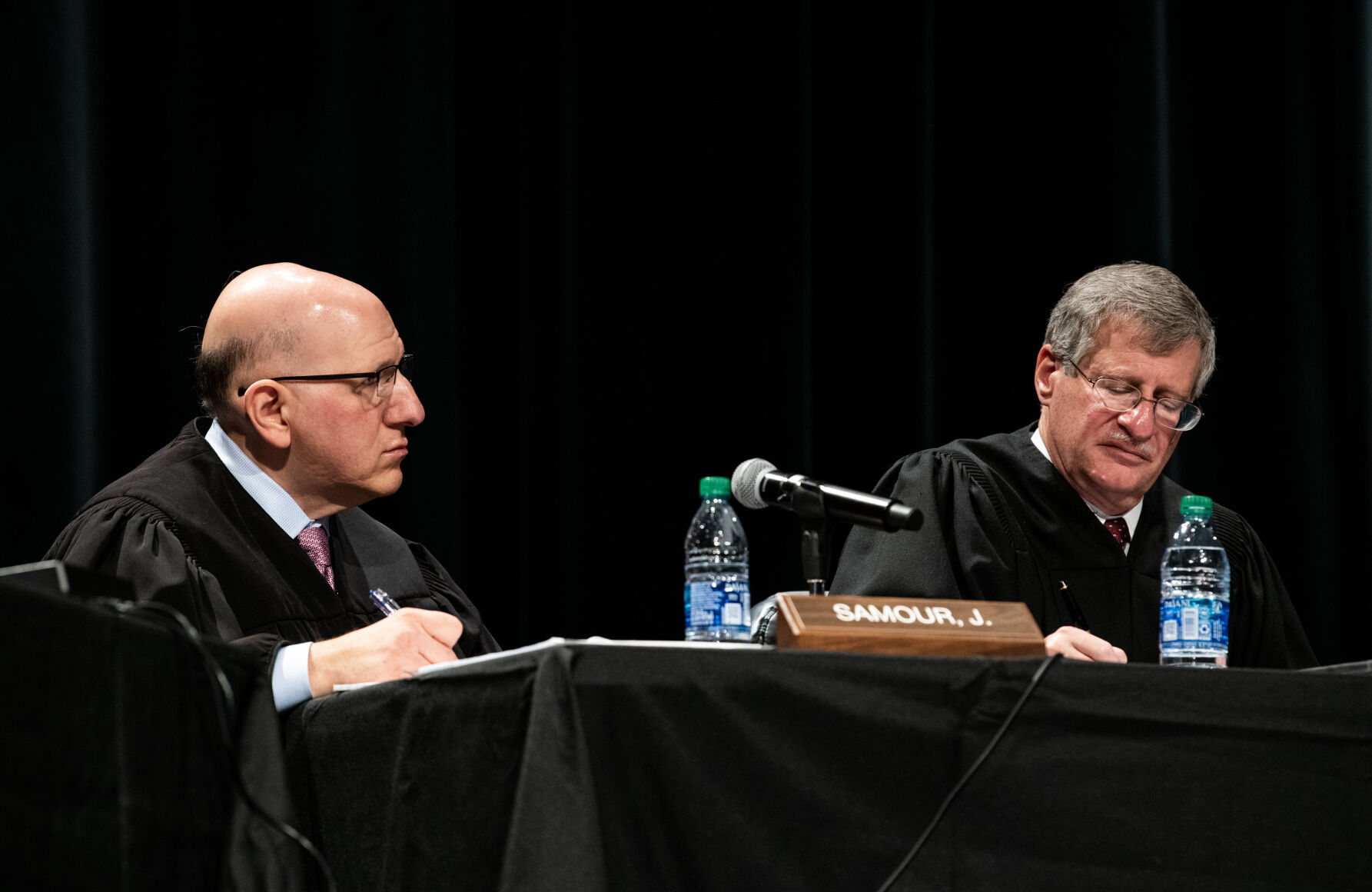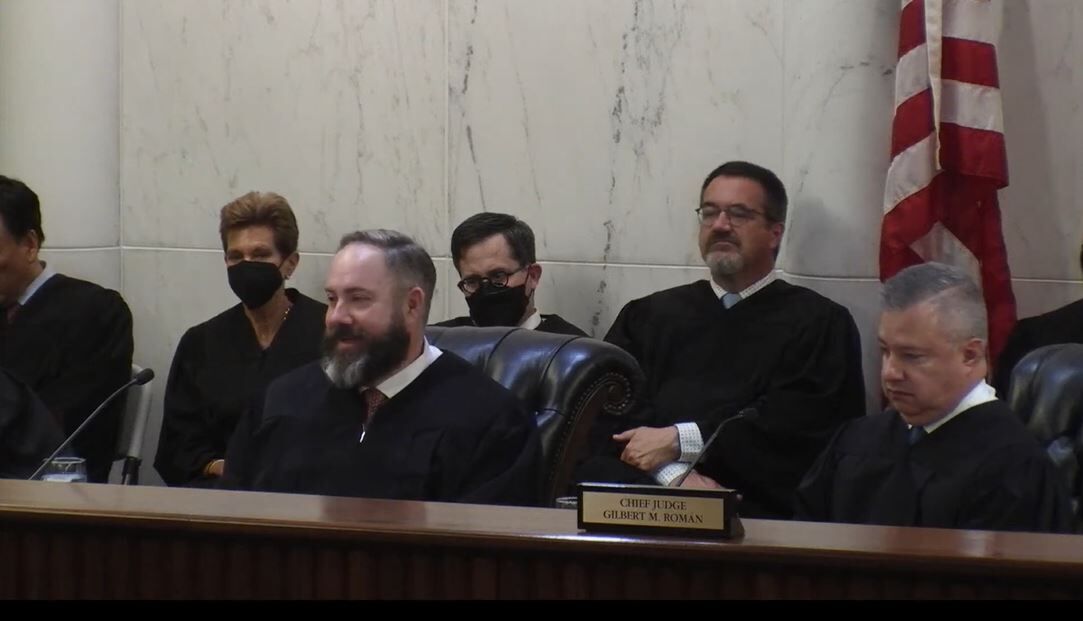‘Why are we here?’ Colorado justices skeptical of state’s push to uphold woman’s conviction

Members of the Colorado Supreme Court on Tuesday struggled to understand why prosecutors remained opposed to overturning a woman’s trespassing conviction, even as both sides agreed the conviction would not stand under current law.
The constitutional prohibition on double jeopardy protects defendants from being prosecuted again for the same offense following acquittal, but also from receiving multiple punishments for the same criminal conduct unless authorized by law. If a jury finds a defendant’s action simultaneously amounts to a less serious and a more serious crime, the convictions will merge, such that the defendant only stands guilty of the more serious offense.
An Adams County jury convicted Taunia Marie Whiteaker of first-degree trespass and second-degree burglary – both felonies. Due to the overlap between the two offenses, Whiteaker argued her trespassing conviction should merge into the more serious burglary conviction to prevent a double jeopardy violation.
Before the Supreme Court, Whiteaker and the Colorado Attorney General’s Office agreed that under the court’s most recent precedent, she is correct.
The stumbling block was a 1997 decision of the court, People v. Garcia, that declared trespassing was not a lesser offense of burglary. The state’s Court of Appeals, in siding against Whiteaker, did not believe the Supreme Court ever overruled Garcia. The attorney general’s office noted that even if the appellate court was mistaken, the error was not “obvious” and Whiteaker’s convictions should both stand.
During oral arguments, Justice Carlos A. Samour Jr. said he did not see why the government’s admission of a double jeopardy violation under the current understanding of the law should still result in Whiteaker losing her appeal.
“If you’ve got a situation where you know there’s a double jeopardy constitutional violation, then I guess I have a hard time understanding why there’s this fight,” he said. “We’re talking about something that’s easily fixable and should be corrected. This person should not be staying convicted of two crimes.”
Justice Richard L. Gabriel also suggested the court’s more recent double jeopardy decisions had been sufficiently explicit, even if it never used the word “overruled.”
“I guess I worry a little bit about the burden you’re putting on this court to make sure we review all of our case law,” he said to the government. “We better make sure we’ve said we’re overruling anything inconsistent? I mean, that just seems to be too strong a rule.”
In Garcia, the Supreme Court declared that first-degree trespassing was not a lesser offense of second-degree burglary, based on the criteria the court used at the time. Twenty years later, in Reyna-Abarca v. People, the Supreme Court adopted a new standard for deciding whether to merge convictions.
Although the decision – authored by Gabriel – did not literally say it overruled Garcia, the upshot of the new standard was to render trespassing a lesser offense of burglary after all.
A three-judge panel of the Court of Appeals acknowledged in Whiteaker’s appeal that Reyna-Abarca did “appear to question” the older rule, but the panel was under the impression the Supreme Court never actually ditched Garcia.
Judge W. Eric Kuhn wrote separately to argue the Supreme Court had updated its standard and, therefore, Whiteaker was correct that she was wrongfully convicted of both offenses. However, Kuhn excused the error because he “cannot say it was obvious,” given the lack of clarity.

At the Supreme Court, Whiteaker and the prosecution both agreed her convictions would merge under the current legal standard. However, the attorney general’s office echoed Kuhn’s finding that any error was not obvious at the time of Whiteaker’s sentencing, so there should be no change to her convictions.
“We want them to follow precedent until it’s changed by this court and until this court tells them that it’s changed,” Senior Assistant Attorney General Grant R. Fevurly said, referring to lower court judges.
Gabriel was skeptical, noting the “whole gist” of his 2017 Reyna-Abarca ruling was that judges should move on to the new standard.
“Why is the government fighting in this case? What is the harm to the government of merging these two offenses?” he asked. “Why are we here?”
Public defender Leah Scaduto, in writing to the court, emphasized the importance of the issue, given that thousands of burglary and trespassing charges are filed across Colorado annually. She acknowledged the concern from some justices that Whiteaker’s trial judge may not have been clear about the law, but argued a wrongful conviction for a felony would follow a defendant through the justice system.
“There are collateral consequences of felony convictions, even if it’s not your first,” Scaduto said.
The case is Whiteaker v. People.














